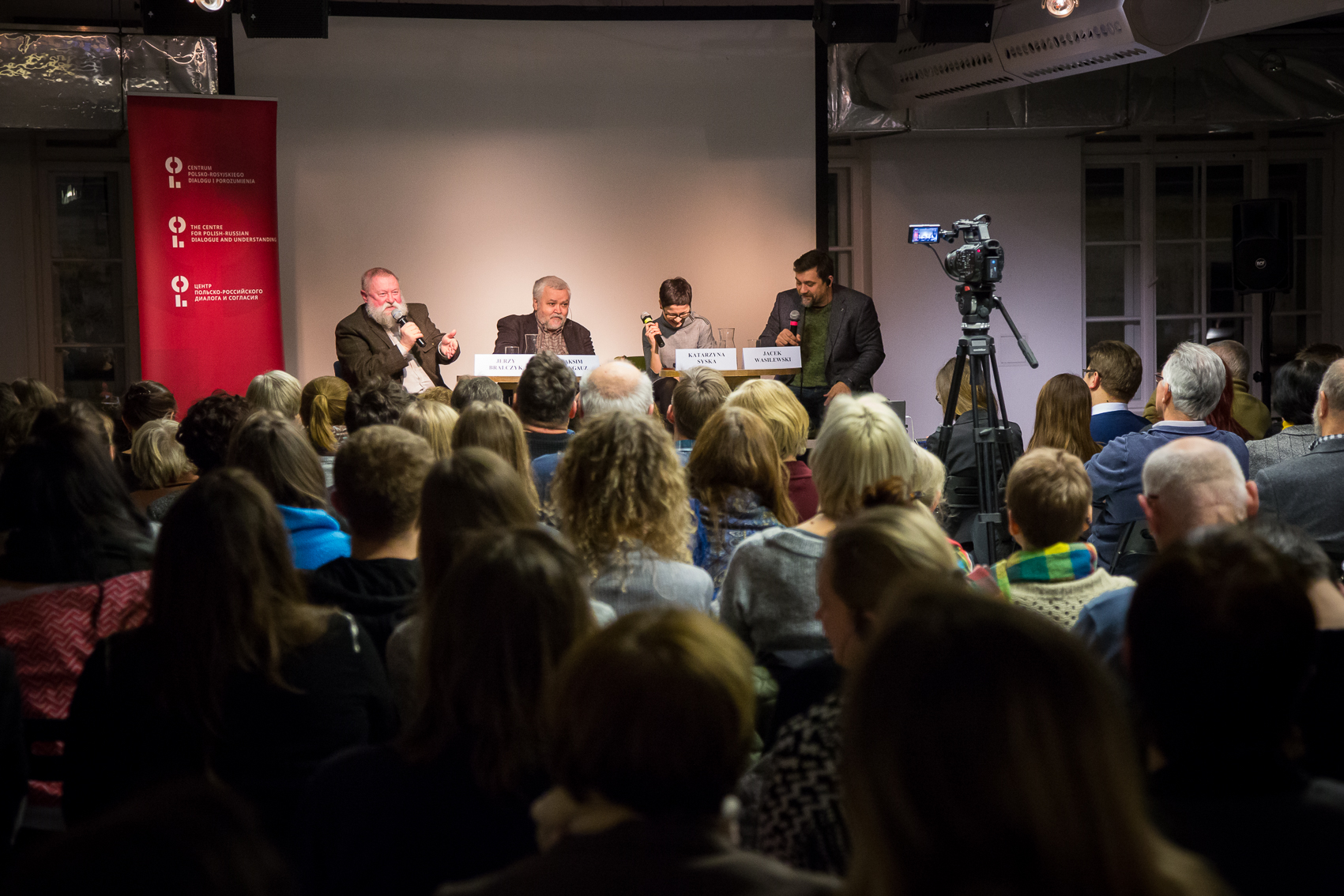Hype, dope and okeydokey. How is the language in Poland and Russia changing?
We invite you to talk about the contemporary language with renowned specialists from two countries – Prof. Jerzy Bralczyk, Prof. Jacek Wasilewski and Prof. Maxim Krongauz from Russia. In the course of the meeting, we want to analyse how the contemporary Polish and Russian languages are changing. Under what influence? How and whether new words are created, and why others become obsolete. Can any common trends be observed? Is it possible to speak about the characteristics of only one of these languages, in spite of the globalisation and pervasive English borrowings? Do politicians and journalists speak and write correctly, what words do they overuse and how does the language of public debate change? Do we know the meanings of the words we use and do they often evolve? What are the main concerns of the Polish and Russian languages and what are the prospects for the future? We will try to answer these and other questions during our meeting.
NOTES ON PARTICIPANTS
Prof. Jerzy Bralczyk – linguist, a specialist in media language, politics, and advertising. Member of, among others, the Polish Language Council and the Polish Linguistic Society. Author of many dictionaries and publications on language knowledge, among others: O języku polskiej propagandy politycznej lat siedemdziesiątych [About the language of Polish political propaganda of the seventies] (1984), Przestrogi i porady językowe dla dziennikarzy [Warnings and language advice for journalists] (1984), Język na sprzedaż [Language for sale] (1996), Mówi się. Porady językowe profesora Bralczyka [It is said. Professor Bralczyk's Language Advice". (2001), O języku polskiej polityki lat osiemdziesiątych i dziewięćdziesiątych [On the language of Polish politics of the 80s and 90s] (2004). Between 2001 and 2007, he was the host of a popular TVP Polonia programme Mówi się [It's said]. He was awarded the Golden Cross of Merit and the Officer's Cross of the Order of Polonia Restituta.
Prof. Maxim Krongauz – linguist, a holder of a PhD in philological sciences, professor, Head of the Russian language department of the Institute of Linguistics of the Russian State University for the Humanities in Moscow. He specializes in semiotics and culture of language, the grammar of Russian language, semantics, a theory of political discourse, and humour. He is an outstanding specialist in the field of Russian language of the Internet. He has published over 200 scientific papers (monographs, textbooks). Author of many books on the subject, including Русский язык на грани нервного срыва [Russian language on the verge of a nervous breakdown], Самоучитель олбанскогого [Self-study olban textbook] about the language of the Russian Internet, Слово за слово. О языке и не только [Word for word. About language and more]
Katarzyna Syska – PhD in humanities, literary scholar, translator, graduate of the Culture of Russia and neighboring nations Faculty at the Jagiellonian University. Lecturer at the Department of Anthropology and Cultural and Literary Comparatistics at the Institute of East Slavic Philology of the Jagiellonian University. In 2009-2011 she was a lecturer of Polish language and literature at the Russian State University for the Humanities. Author of many articles on contemporary Russian prose and dramaturgy, a monograph entitled O neosentymentalnych tendencjach w najnowszej literaturze rosyjskie [On neosentimental tendencies in the latest Russian literature]. She teaches the following classes: "Cultural life in contemporary Russia", "Analysis and interpretation of literary texts", "The latest Russian literature".
